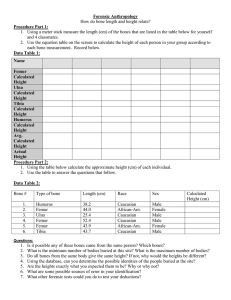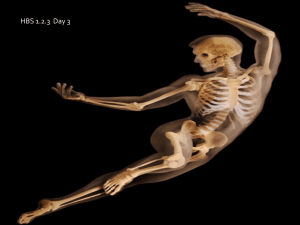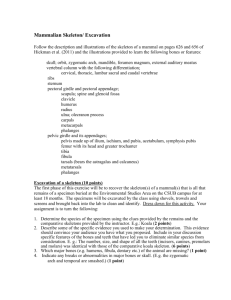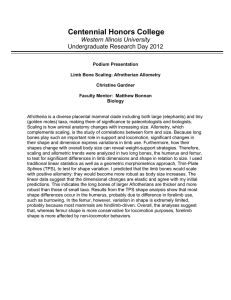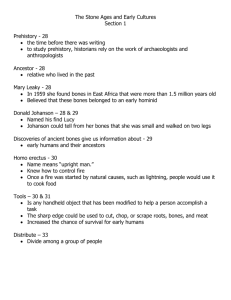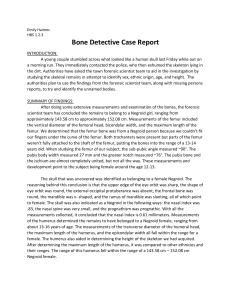Mathematics in Forensic Science Below are four equations that can
advertisement
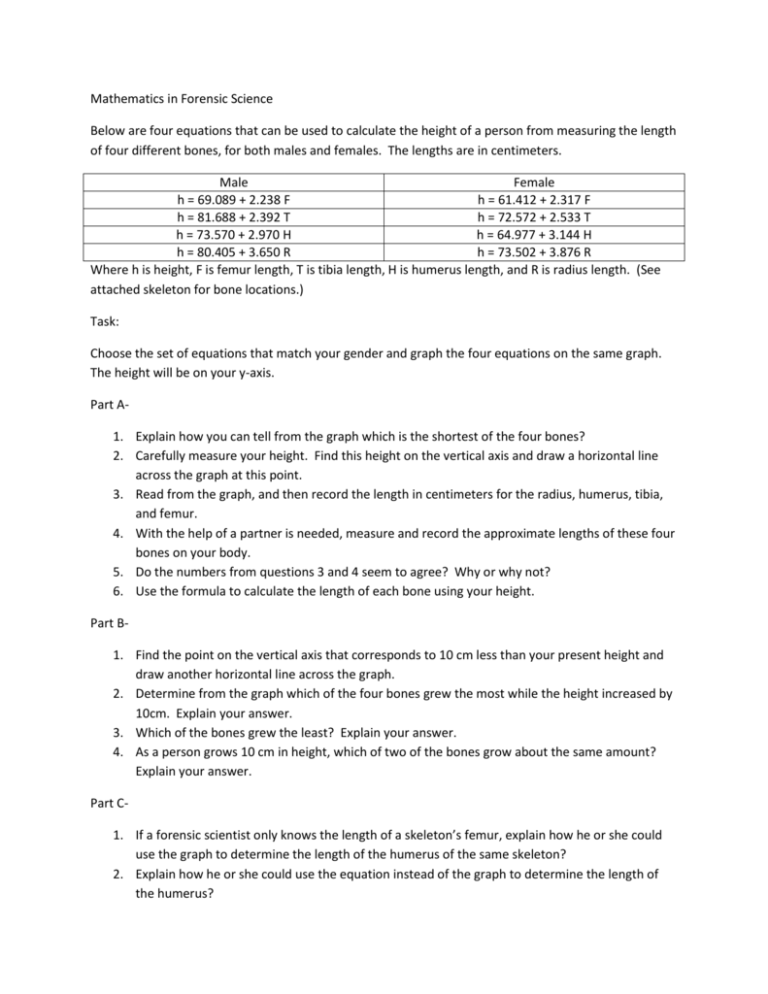
Mathematics in Forensic Science Below are four equations that can be used to calculate the height of a person from measuring the length of four different bones, for both males and females. The lengths are in centimeters. Male Female h = 69.089 + 2.238 F h = 61.412 + 2.317 F h = 81.688 + 2.392 T h = 72.572 + 2.533 T h = 73.570 + 2.970 H h = 64.977 + 3.144 H h = 80.405 + 3.650 R h = 73.502 + 3.876 R Where h is height, F is femur length, T is tibia length, H is humerus length, and R is radius length. (See attached skeleton for bone locations.) Task: Choose the set of equations that match your gender and graph the four equations on the same graph. The height will be on your y-axis. Part A1. Explain how you can tell from the graph which is the shortest of the four bones? 2. Carefully measure your height. Find this height on the vertical axis and draw a horizontal line across the graph at this point. 3. Read from the graph, and then record the length in centimeters for the radius, humerus, tibia, and femur. 4. With the help of a partner is needed, measure and record the approximate lengths of these four bones on your body. 5. Do the numbers from questions 3 and 4 seem to agree? Why or why not? 6. Use the formula to calculate the length of each bone using your height. Part B1. Find the point on the vertical axis that corresponds to 10 cm less than your present height and draw another horizontal line across the graph. 2. Determine from the graph which of the four bones grew the most while the height increased by 10cm. Explain your answer. 3. Which of the bones grew the least? Explain your answer. 4. As a person grows 10 cm in height, which of two of the bones grow about the same amount? Explain your answer. Part C1. If a forensic scientist only knows the length of a skeleton’s femur, explain how he or she could use the graph to determine the length of the humerus of the same skeleton? 2. Explain how he or she could use the equation instead of the graph to determine the length of the humerus?
